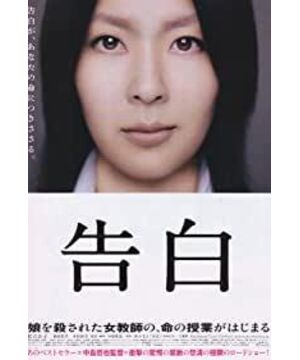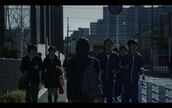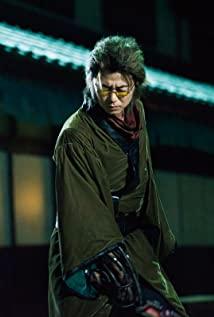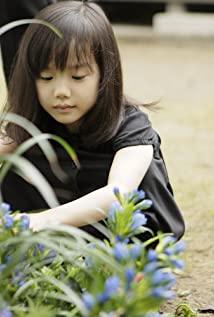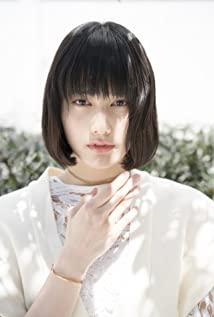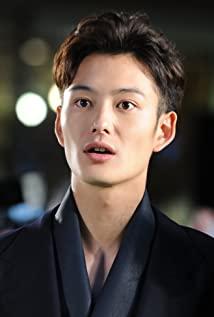Or to put it another way, in the history of film, a complete film must also include the evaluation after it is released, and those strange sounds are things that directors cannot dominate. This is not a confession, this is the truth.
The visualization of mystery fiction is different
from China and South Korea and other countries and regions, and the types of films in the Japanese film market are very clear. Like the theater version of Ghibli and other series of cartoons and TV series. The existence of these types of movies has cultivated a strong enough audience. Real-life movies may not have the upper hand. At the same time, due to the highly developed cultural industry, a large number of films adapted from literary works continue to emerge. For more than ten years, from Suzuki Mitsuji's "Midnight Bell" to Murakami Haruki's "Norwegian Forest", they have never stopped. Looking at it now, mystery novels are at an excellent moment of opportunity.
Taking the rise and fall of the Japanese horror movie (J-Horror) as a mirror, this genre film has suddenly emerged. It reached its peak at the end of the last century and the beginning of the new century, and gradually entered a trough around 2005 (but it is expected to make a comeback with the current hot 3D technology). At the same time, pure love films are becoming popular and blooming everywhere. Almost at the same stage, film and television works adapted from mystery novels continued to appear, among which the works of Keigo Higashino, Kotaro Isaka and others were remakes one by one. This is different from Fujisawa Shuhei, who explains the samurai at the bottom. After all, the period drama is trapped in the end of the shogunate era. Outstanding performance does not mean true prosperity. Other period dramas still need to find inspiration from classic old works. By 2010, "Golden Dreamland" and "Confession" appeared one after another. In 2011, "White Night Walk" was filmed in the local area, and the mystery seemed to usher in the golden age.
Looking back at the current Japanese mystery novels and their video works, works that are close to the early classics and heavy inferences have rarely appeared. In recent years, films such as "The Moon Suspicious Cloud" are the first to be released. At the same time, it is probably to take care of the emotions of the viewers, and the heavy taste and weirdness of Edogawa's random steps are also rare. Someone concluded that the current reasoning-themed movies emphasize meaning, neglect reasoning, social topics, and neglect rigorous logic, which is not unreasonable. Like "The Devotion of Suspect X" and "Golden Dreamland", the content of the talk has not cared about the intellectual pleasure, and hoped to bring more real touch to the audience.
The background of many mysteries is often obscured to facilitate the storytelling. However, they may also be synchronized with the present and breathe together. "Confession" is a case in point. There are three main characters in the
juvenile delinquency and growth theme
"Confession": a female teacher, a teenager A and a teenager B. From the perspective of the story itself, the movie is more like a carefully arranged revenge plan. The female teacher avenged the mercy of the Avengers and gave the students an education lesson on life. The whole process can be described as devastating human nature and extremely abnormal. The film does not pursue layers of progressive and interlocking reasoning, and focuses on describing the psychological conditions of different parties, especially those heart-piercing moments where there is still a difference. A movie once said that after killing a hundred people, can you still love others in your heart? Either love or kill. It's so difficult to grow up sometimes.
Although in recent years, Japan has not experienced school shootings as frequently as the United States, the problems of school violence and juvenile delinquency have always been a headache. In Japanese movies in the past ten years, juvenile delinquency has been mentioned many times. The most representative ones are Shunji Iwai’s "All About Lily Chou" and Fukasaku Kinji's "Battle Royale". The Internet and the controversial juvenile law. A recent report by "Yomiuri Shimbun" pointed out that the Cabinet Office conducted a public opinion survey and asked "why young people are on the road of crime". More than 60% of adults said it was because of "the popularization of mobile phones and the Internet in today's society." From this point of view, the plot setting in "Confessions" simply coincides. Students have a single machine to spread news, inform each other and bully; female teachers suffer from the fact that the juvenile law cannot punish the offenders, so they can only avenge themselves; after the Lunaxi incident, admirers and special websites appeared on the Internet, and the girls in the film Is one of them.
Looking back at the major cases in Japan in the past two decades, the Miyazaki Tsunami incident and the Akihabara murder incident both had an impact on the otaku culture. However, because the murderers were adults, they could be discussed publicly. But juvenile delinquency is different. Because of the existence of the juvenile law, juvenile A or young girl A is very well protected. The outside world often lacks much information on specific developments such as acceptances and judgments. "Confession" was at least affected by major cases such as the drunkard Rose Saint Dou incident. This case occurred in 1997. Teenager A was only 14 years old, but he successively killed children who were weaker than himself. He even deliberately left a criminal confession, like police and public provocations, without guilt, which shocked the Japanese society. The incident also caused a bad influence. Because the murderer looked handsome, fans began to appear on the Internet to worship. The final result was this. After being detained and treated in the reformation home, Juvenile A returned to society.
Fortunately, the juvenile law and the like were only taken in a hurry, and Tetsu Nakajima did not intend to challenge the law or torture the world. That was something Zhou Fang Zhengxing did. Three pairs of mother and son appeared in "Confession", all of them ended in tragedy and failure. The neglected teenager A, the doted teenager B, their growth education completely failed. There is no warmth, no happiness, only the sound of important things disappearing.
From the violent family in "The Story of Shimo Wife" to the sisterhood of "The Life of the Disgusted Pine", and even the little girl in the fairy tale "Pago and the Magical Picture Book", Tetsuya Nakajima's works have too many shadows of growth. Continue to influence the protagonist. The elders are either absent or unable to give enough love, and these children and young people can only use fancy clothes and funny faces, accept the fate of drifting with the flow, and use their bodies to fight against the world.
It is undeniable that "The Life of the Disgusted Pine Nuts" has a large audience, because Tetsu Nakajima also hit the hearts of women. As for "Confession", its influence is more on the problems of Japanese society. Parents should think carefully about how to treat their children.
Tetsuya Nakajima
If you look back at "Summer Adults" in 1997, you can hardly believe that it was Tetsuya Nakajima after 2000. There is no explosion of colorful colors, no crazy funny characters, no skillful photography and noisy music. And these characteristics are exactly what people had impression of Tetsuya Nakajima before "Confession". He is like a color theater, making movies while making magic, whether it is martial arts or juggling, others can't figure out whether it is martial arts or juggling. There are a lot of Japanese film masters, and the mountains are admiring. Maybe Tetsu Nakajima will never become a master, but isn't it good to be an excellent artist?
In "Confession", Tetsu Nakajima is no longer what he used to be, he has changed. Many people criticized the annoying technique of "Confession". The whole article is high-speed photography and upgraded slow-motion, which tells an annoying "human nature" theme. The background music is repeated with Radiohead, which is simply deliberately attracting attention and collecting vulgarity. Of great success. The problem is that if Tetsu Nakajima has always been like this, he would have been kicked into the ranks of junk narcissistic directors, but this is not the case. The various changes made by Tetsuya Nakajima are entirely to serve the film "Confession". Perhaps in the next one, he will let the protagonist jump out and tell sad stories happily.
Compared with "Paco and the Magical Picture Book", Tetsu Nakajima is not arrogant. Compared with "The Life of the Disgusted Pine Nut", "Confession" is uncomfortably depressing. Although there are still things such as student group dances, from a practical point of view, their credit is not as good as the rear-view convex mirror, and they no longer play the role of embellishment in "The Life of the Disgusted Pine Nut". In the middle and the second half, singing and dancing basically no longer appear. In the past, the pace of movies was fast, even accompanied by a sense of jumping. In "Confession", Tetsu Nakajima almost gave up the sense of speed, deliberately slowed down, and listened to the characters' confession one by one.
In order to match the theme of revenge and crime, "Confession" creates an icy atmosphere. Gray and black in color occupies a lot of space, and characters often appear in dark or enclosed spaces. Corresponding to it are some empty shots, flowers, water droplets and the sky. They look beautiful, but it is difficult for people to enter the state of mind of appreciating beauty. This seems to illustrate the theme of "Confession", the young man seems to be weak, but he knows that the evil on his body is actually heinous. Good and evil are beautiful and ugly, they are based on one. And for a "evil" theme, I spent a lot of time using fancy skills. This seems to be the source of negative comments. People will pursue coldness and hope for realism, but they don't necessarily accept this long, embellished and beautified confession of villains. .
If the "Confession" has a strong sense of form, it is another mess. Tetsu Nakajima has always emphasized the sense of form, which is undoubtedly related to his background in advertising and MV shooting. How to impress the audience and receive key information within a limited time is the basic requirement of a good advertisement. So slow motion is not a big problem. Animation, music, and lines are all allowed to take turns to play in groups.
Compared with the original work, Tetsu Nakajima also retained the main story without making major adjustments to the characters. Like the opening of the game, the murderer is exposed directly, these are excellent ways to capture the audience. The more obvious change is the addition of the exaggerated effect of the big bang at the end, slow motion backwards, backwards in time, imaginary cover water can be collected, this can be regarded as a wonderful highlight. The pursuit of optimization in visual effects really adds to the theme. Above the line, add a sentence "just kidding", the remaining sound is not over, it also played a finishing touch. Some people say that this sentence is an ambiguous cover, but it is more like the fatal blow of the female teacher to the teenager A. Without this sentence, this painstaking revenge plan would not be perfect.
The big actress
Matsuko Matsushita's "Life of the Disgusted Matsuko" made Miki Nakatani bloom, and she took a lot of queens and actresses . With "Confession", Matsuko continued to play a unique role and played a complex role full of depth. The female teacher is like a dark flower, exuding a gloomy breath of death, no one can approach it. At the end, she shed tears and squeezed a smile out of her face of collapse is particularly wonderful.
Unfortunately, limited by the stage arrangement, starting from the middle stage, the role of the female teacher temporarily left the stage, causing Matsuko to lack the stage space to play. This has an intuitive reaction to the awards. She is definitely not as good as Kimura Yoshino who plays the mother of Teenager B, and in various competitions for the heroine, Fukatsu Eri of "The Evil" is always far ahead. Fortunately, last year's "Wei Rong's Wife: Cherry and Dandelion", Matsuko has been widely recognized.
It should be said that compared to the era of big studios, this generation of young Japanese actresses seldom have big actress-level figures. The big actress is a generation of actresses, like the current Yoshinaga Sayuri, the former Tanaka Kinyo and others. Chiyoko, the protagonist of Jin Min's "Millennium Actress", is the incarnation of many great actresses.
Due to the ubiquitous influence of the television media, the star-making project is also an assembly line operation. Nowadays, the Japanese actresses are renewed very quickly, and the former trendy players will be overwhelmed in a blink of an eye. Most of them began to get involved in acting from shooting commercials and taking on TV series. Two things come and go, the development of movies is restricted and often lacks. In fact, it's not that common to be born in a family of acting like Matsu Takako. There are not many movies played by Matsuko, from "April Story", "Hidden Sword and Ghost Claw" to "Wei Rong's Wife: Cherry and Dandelion", there are probably only three of them. As for "Legal Heroes", she is actually still a shadow of the queen of Japanese dramas, but it is gratifying to have a box office guarantee. There is no doubt that in this generation of actresses, Matsuko has taken the lead on the way to the big actress. Even compared to Rie Miyazawa, Miki Nakatani, and Eri Fukatsu, she has no disadvantages at all. 【City Pictorial Issue 278】
View more about Confessions reviews


